09/07/2021
July 9th 2021.- Intervención de la vicepresidenta y comisaria de Competencia de la Comisión Europea, Margrethe Vestager, en la apertura de la tercera y última jornada de DigitalES Summit 2021 (vídeo próximamente disponible en el canal de YouTube de DigitalES)
It’s a pleasure to be with you and take part of this conference, even if it’s only from far away,
The question we are discussing today is central to the times we live in. How can technology drive our recovery? How will it shape our future? In a way, our experience during the past year already provides a first answer to this question. It is hard to imagine how these months of the pandemic would have been like without digital tools in our lives, to help us keep in touch with the ones we love, to continue learning, working, studying, shopping, exercising, and so on.
The pandemic clearly accelerated our digitalization, and there is no going back to the world as we knew it before. On the contrary, new booming technologies like connected objects, upcoming innovations in Artificial Intelligence, or high-performance computing means digital will play an even bigger role in our everyday lives; and a bigger role in securing our competitiveness as a continent.
This is an opportunity which we cannot miss. This is why a few months ago we made an important decision that every member state should at least invest 20 per cent of the funding they receive through Next Generation EU on digital. Spain went even beyond, with 28% of its Recovery Plan aimed to fund its digital transformation. This shows the great level of seriousness and ambition that you are putting into your digitalization.
Because one thing is for sure: there is no recovery without digital technologies.
Europe’s digitalization is central to its prosperity. But digitalization is not an end in itself -it only makes sense if digital technologies are used to make our economy greener, more resilient, more inclusive, leaving no one aside.
That is why we propose four priorities for our transformation: skills, infrastructure, digitalization of public services, and digitalization of businesses.
Let me start with skills. Digitalization is first and foremost about the people that make it happen. Every European should feel empowered to own this digital transformation. And that will only happen if they have the right skills to master digital tools. And it applies to all levels, from the most basic skills to the highest digital expertise.
So, in addition to increasing people’s overall digital skills, we have an objective to reach 20 million digital experts by 2030, and with a better gender balance, to get the most of our talent pool. With 3.6 billion euro dedicated to digital skills training, Spain is clearly lifting itself to the challenge.
Second, no digitalization will ever be possible without the right infrastructure. We need performant, sustainable digital infrastructure. This starts with reliable network connection. It became obvious with the pandemic that we were not equally equipped to face the situation. Some, with poor connectivity, felt severely penalized, when not simply discriminated.
And that is why in ten years from now, we want all European households covered with gigabit connectivity. With its excellent fibre optic networks, Spain is already quite advanced on this journey.
To get the full benefits of this infrastructure, we must be able to rely on the cybersecurity of our networks. And this is why implementing the EU’s 5G Security Toolbox is urgent and essential.
Our third part is the digitalization of businesses. Clearly, Europe’s businesses must be more digital. This is not an option, it’s a key to our economic growth. Our ambition is that at least 75% of European businesses (including the smaller ones) have taken up digital solutions by 2030. It can be local stores that add a click & collect solution, or farmers that use weather and GPS data to improve their yields.
And we want to double the number of European unicorns from a hundred and twenty two (122) today (which include great Spanish examples like Cabify). With 3 billion euro targeted to supporting the digital transformation of SMEs and self-employed people, Spain will play a key role to achieve this ambition.
Last but not least, our digital transformation will not be complete without the digitalization of public services. First, because paying our taxes or doing our medical administration online will make our lives so much easier. But also because it will boost the digitalization of businesses, specially the smaller ones.
And this is why we propose to have a hundred percent of key public services available online for all Europeans by 2030, and eighty per cent of us should use a digital identity. As clearly reflected on the Spanish Recovery Plan, this isn’t just about money -this is also about making the right reforms for public administration to embrace digital solutions; an area where Spain already performs very well.
Together, those four priorities will enable a successful European digital transition. But there is something else without none of this will be possible, and that is trust. People need to trust that digital technologies will serve them well. They must feel in control. This starts by having some same level of rights online as we do offline. Spain is a pioneer in this field, with its charter on digital rights.
A few months ago, me also proposed a European set of digital principles, including access to fair and non-discriminatory online services.
Europe has what it takes to make it happen, but it will need all of us -European and national levels, public and private sectors, all of which are taking part in this conference today. I wish you a lively and constructive discussion, and [I] hope to pursue this conversation in person not too far from now.
Thank you.
> Nota de prensa (English)
Síguenos en Redes Sociales:










